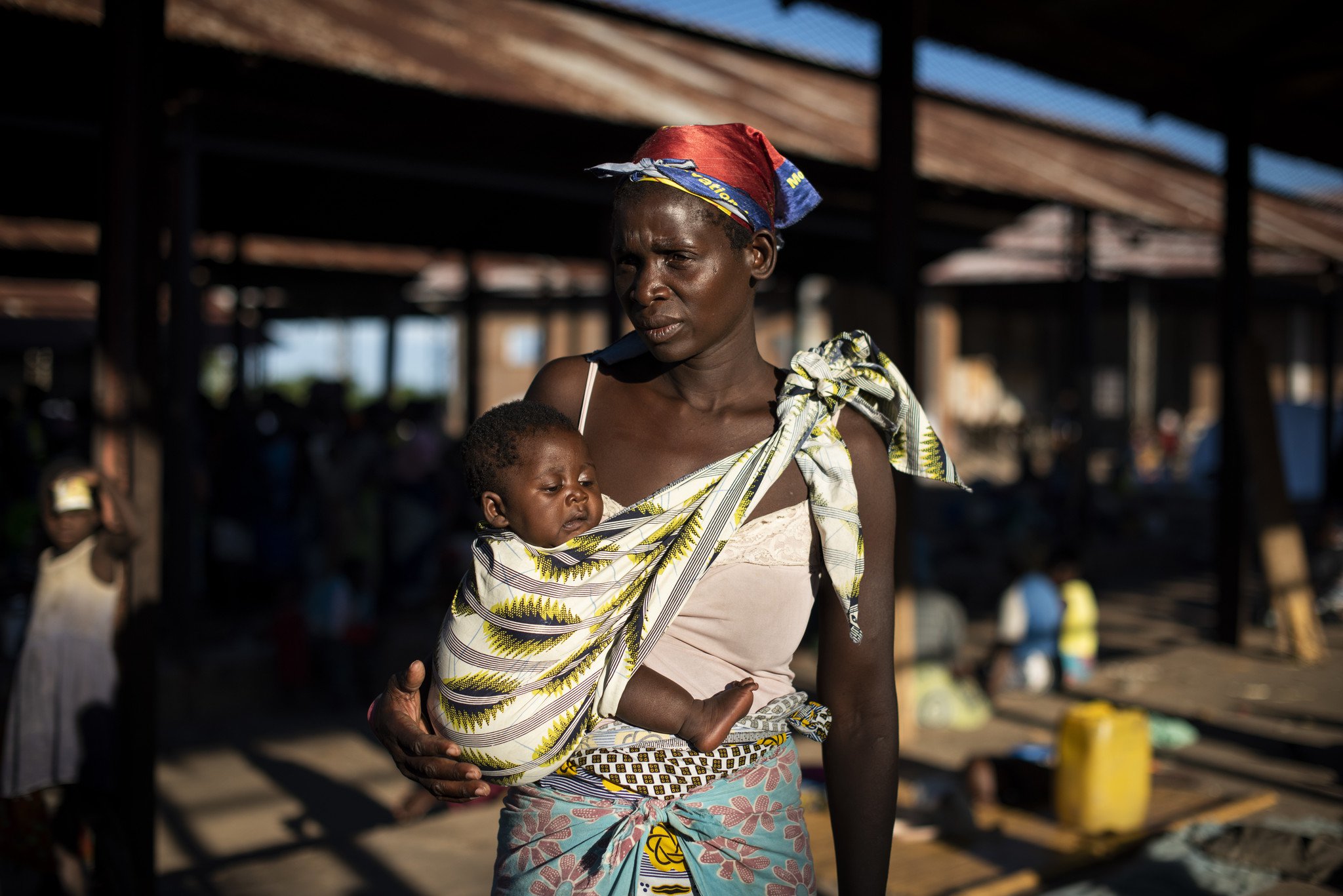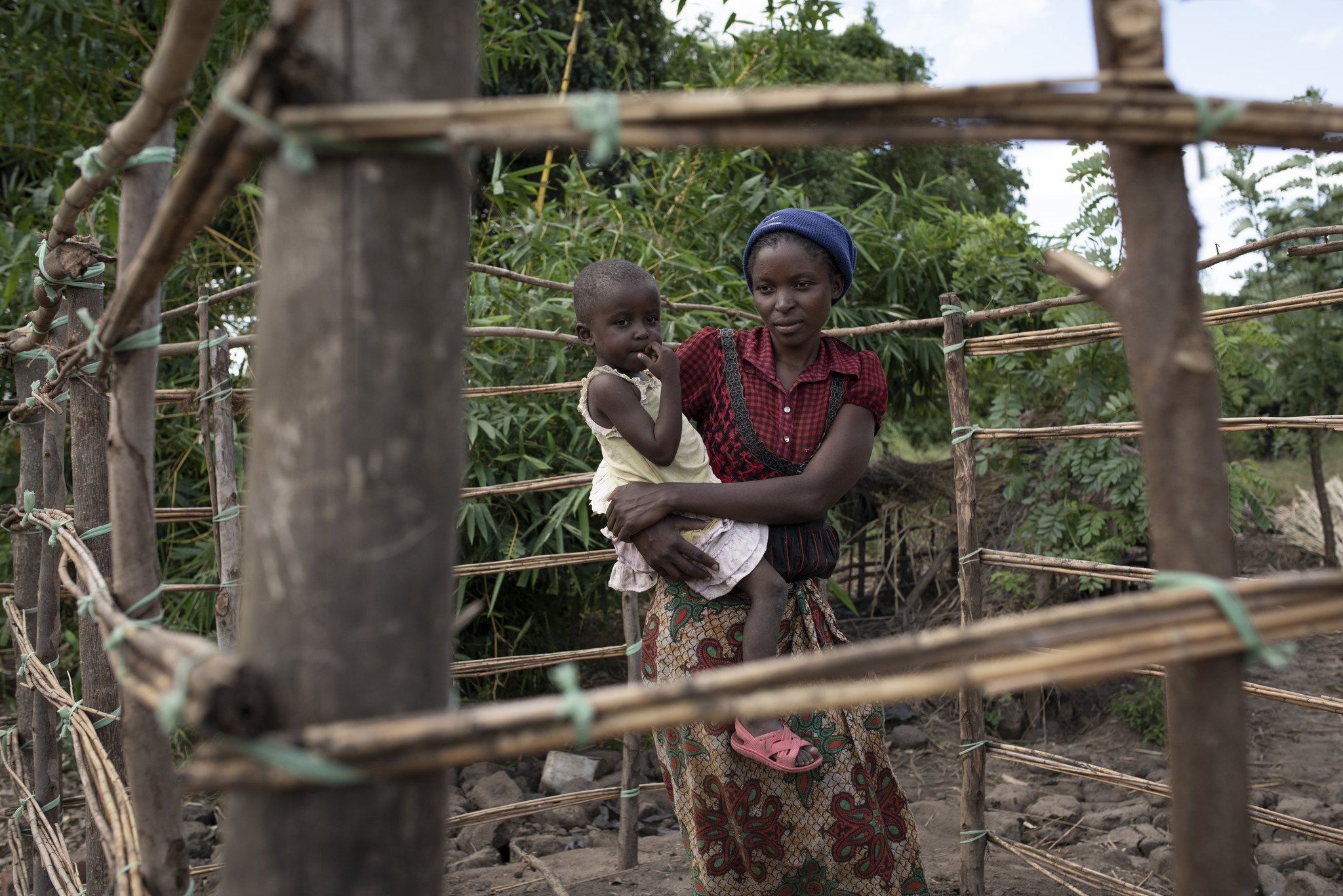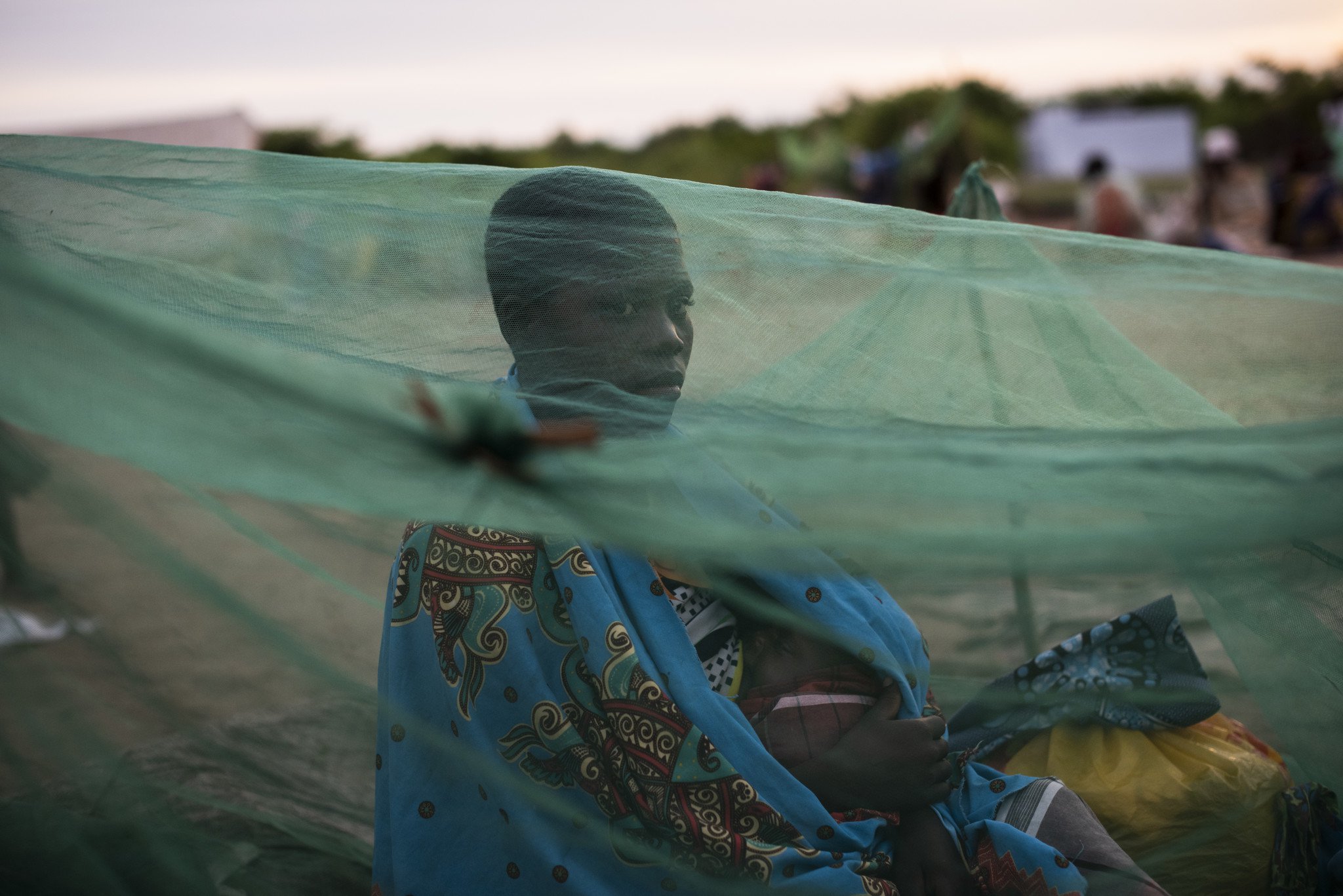In the aftermath of Cyclone Idai, mothers in southern Africa exercised superhuman strength to get their children to safety.
Since Cyclone Idai hit the coast of Mozambique and areas of Zimbabwe and Malawi on March 14 and 15, more than 800 people have died and nearly two million have been affected by the storm.
Oxfam staff spoke with mothers who fled their damaged homes, including a few who have settled in Malawi’s Bangula camp, which is currently home to at least 5,000 displaced people from Mozambique and Malawi. We asked these women what it was like to live through the storm and ensuing flood. One theme emerged above all: Despite everything the storm took from them, they still have their children.
Read their accounts below.
Shamim

Shamim and her three-year-old daughter were asleep when the flooding started, oblivious to the rain. "The flood waters came and filled our house," she remembers. "I pulled out my child and failed to save any belongings from the house as it fell." She left her daughter with relatives nearby, but there was only room for one.
She has been staying in Bangula camp since the middle of March. With its few toilets and limited access to clean water, Shamim has decided not to bring her daughter to the camp for fear that she will “contract infectious diseases,” such as cholera.
Malita

When the floods came to Malita's village in Mozambique, village chiefs advised everyone to move to higher ground. At that point, Malita, 35, says realized the water was already at knee-level.
"I didn't salvage anything, I just took the children," she recalls. She climbed a tree, balancing one child on her back and another on her hip, as she pulled the last one up by the hand. "For two days we were in the tree with no food, and the rain was still falling," she recalls. On the third day, someone came by on a canoe to rescue them.
In Bangula camp, Malita is looking after her three children as well as three of her deceased brother’s children. Her biggest problem, she says, is that they have no clothes and no blankets. They sleep in the open air. "Now I don't know how I can help myself," she says. "God only knows."
Catherine

We met Catherine in a field next to the remains of her home in southern Malawi—a home that she, her husband, and three-year-daughter had moved into just three days prior to the cyclone.
"I woke in the middle of the night," Catherine, 22, says. "That's when I noticed the water was rising." She woke up her husband and daughter and they managed to find shelter at a nearby primary school. The next morning, they discovered that their house had collapsed.
"I only managed to save my child, one pot, and one plate," Catherine says. "Our food went with the water, our animals, everything [including their crops] went with the water."
Dorothy

Dorothy's house in Malambwe, southern Malawi, collapsed after Cyclone Idai, and floodwaters carried away most of her belongings, including livestock. She managed to escape to higher ground with her four-year-old daughter Tinenechi*.
Now, she is working with her brother to rebuild her home, but lacks materials. "We don't have a plastic sheet; we also don't have poles to use for roofing," she says. For now, they have managed to string together a framework for the house using pieces of mosquito net to bind everything together. However, they have nothing to protect them from mosquitoes, and she is worried about malaria.
Naomi

When Naomi, 21, fled her home, she was severely pregnant, and on the verge of going into labor. She was able to reach a nearby hospital, where she gave birth to Maliko*.
“I felt like it was a huge misfortune that my first baby was born under such circumstances,” Naomi says. “I didn’t have anything for the baby because everything was washed away.” She is staying in an open-air camp in Malawi’s Nchalo trading center. People in the community have donated a few items, including some clothes with which to swaddle Maliko, but she needs diapers, and she is worried that sleeping in the open makes him vulnerable to illnesses.
What is Oxfam doing to help these women and other people who are recovering from Cyclone Idai?
So far 1,000 families in Bangula camp have received hygiene kits containing essentials, such as buckets, soap, laundry soap and sanitary pads.
In total, Oxfam and our partners have reached more than 96,000 people through water, hygiene, and sanitation activities, including water trucking, distributing cholera preventing kits, and hygiene training.
